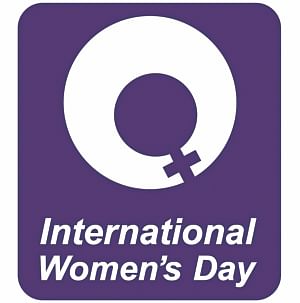Protecting women from sexual harassment
Protecting women from sexual harassment

In the absence of an effective policy and legislative framework to combat sexual harassment, it has continued undeterred for more than a decade in Bangladesh. An overwhelming majority of women who have stepped outside their homes in pursuit of education and livelihood have encountered some level of sexual harassment in this country.
Following disturbing and depressing reports by the media and organised protests by the civil society in the wake of increasing incidents of sexual harassment on campus and at workplaces in Bangladesh, Bangladesh National Women Lawyers Association (BNWLA) invoked the writ jurisdiction under Article 102 of the Constitution for prevention, protection and redress against sexual harassment at educational institutions and workplaces.
In response to public interest litigation filed by BNWLA, a division bench of the High Court delivered a milestone judgment (14 May 2009) by issuing certain directives in the form of guidelines to be treated as law and strictly complied by educational institutions and employers in the public as well as private sectors with immediate effect. The verdict is monumental in the context of promotion of gender equality in Bangladesh in as much as it aims to create a safe and healthy working environment for women.
It was four years since the judgment was affirmed. The High Court had made this judgment as mandate for 19 respondents to formulate complain committees in their respective organisations as per Article 9 of the guideline. Yet the implementation of the guideline is not up to the mark. The Ministry of Law, Justice and Parliamentary Affairs, Ministry of Education and Ministry of Children and Women Affairs (MOWCA) have formed complain committees and also send notification to respective authorities to take necessary action in this regard.
The landmark judgment has also catalysed the University Grants Commission to send out notifications to colleges and universities urging them to set up complaint committees in accordance with the directives of the Apex Court. It is encouraging to note that 31 Private universities and 22 Public universities have complied with the Supreme Court guidelines by setting up complaints committees. In the same vein, universities have undertaken awareness programs on sexual harassment including arranging seminars and debates.
The Bangladesh Police have formed anti- sexual harassment committee in its headquarter. In the RMG sector, Bangladesh Garments Manufacturers Employees Association (BGMEA) have formed anti- sexual harassment committees centrally and notified around 3000 enlisted garments factories to comply with the directives of the Supreme Court. Bangladesh Bar Council and Bangladesh Knit Wear Manufactures' and Exporters Association (BKMEA) had also formed complaint committee and notify their exiting members to formulate a complaint committee at their respective work places.
Almost all the major NGOs working in the field of human rights have formulated policies to this end and have drawn up awareness programs in their respective working areas. NGO Affairs Bureau under Prime Minister Office had formed a compliant committee and placed a complaint box in their office. Similarly this kind of complaint committees has been established by IBN Sina Pharmaceuticals, Bangladesh Resham Board, and Offices of the District Judge all over Bangladesh.
Though complaint committees had formed at different institutions, most of them had found ineffective in reality. Still most of the schools and colleges didn't formed complaint committees & taken initiatives to curb pornography followed a direction of Ministry of Education. Bangladesh Bank and its registered banks, print and electronic media houses, private commercial offices/corporate bodies are yet not in process of application of the guideline.
Although the monumental judgment pronounced by the High Court Division of the Supreme Court of Bangladesh against sexual harassment is a milestone response of the judiciary to create an enabling, safe and secure environment for women at workplaces and educational institutions, the real challenge lies in the effective implementation of these directives. It will require an all-out effort by concerned stakeholders and a well-thought out action plan drawn and carried out to translate the Supreme Court's directives into reality.
In the absence of an effective monitoring mechanism and the prevailing reticence amongst concerned government authorities to submit to court verdicts, it will indeed be an uphill task to ensure that concerned authorities at workplaces and educational institutions in the public sector are duly observing the directives. This challenge will be further intensified in the private sectors, which are governed, by their own rules and procedures.
By observing the area of women rights and keeping behind the International women's day 2014, this is my appeal to government to constitute a national level monitoring and oversight committees with representation from the judiciary, media, academia, corporate sectors, NGOs & others. This committee should actively explore and identify appropriate strategies for effective implementation of the High Court directives.
The writer is an Executive Director of Bangladesh National Women Lawyers Association (BNWLA) and a Petitioner of aforesaid PIL